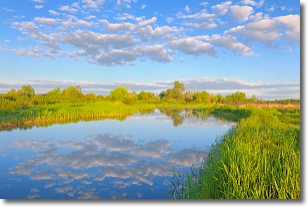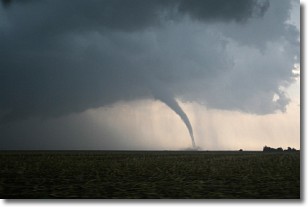Weather Alert in Alaska
Flood Advisory issued June 19 at 10:53AM AKDT until June 20 at 4:00PM AKDT by NWS Fairbanks AK
AREAS AFFECTED: Central Beaufort Sea Coast; Central Arctic Plains; Central Brooks Range
DESCRIPTION: * WHAT...Flooding caused by snowmelt continues. * WHERE...Sagavanirktok River along the Dalton Highway. * WHEN...Until 400 PM AKDT Friday. * IMPACTS...Flooding of rivers, creeks, streams and other low-lying and flood-prone locations is imminent or occurring. * ADDITIONAL DETAILS... - At 1049 AM AKDT, high water from rapid snowmelt over the past five days continues to cause erosion and minor flooding along the Sagavanirktok (Sag) River. - The USGS river gauge at MP 325 is now slowly receding. - High water will continue to move downstream over the coming days. Infrastructure near the river's mouth, including roads and bridges near the Deadhorse/Prudhoe Bay area is already being impacted. Water levels in this area are expected to gradually rise, particularly around high tide. - Motorists and local authorities are advised to monitor conditions closely and avoid flooded areas. - http://www.weather.gov/aprfc
INSTRUCTION: Stay tuned to further developments by listening to your local radio, television, or NOAA Weather Radio for further information.
Want more detail? Get the Complete 7 Day and Night Detailed Forecast!
Current U.S. National Radar--Current
The Current National Weather Radar is shown below with a UTC Time (subtract 5 hours from UTC to get Eastern Time).

National Weather Forecast--Current
The Current National Weather Forecast and National Weather Map are shown below.

National Weather Forecast for Tomorrow
Tomorrow National Weather Forecast and Tomorrow National Weather Map are show below.

North America Water Vapor (Moisture)
This map shows recent moisture content over North America. Bright and colored areas show high moisture (ie, clouds); brown indicates very little moisture present; black indicates no moisture.

Weather Topic: What are Stratocumulus Clouds?
Home - Education - Cloud Types - Stratocumulus Clouds
 Next Topic: Stratus Clouds
Next Topic: Stratus Clouds
Stratocumulus clouds are similar to altocumulus clouds in their
fluffy appearance, but have a slightly darker shade due to their additional mass.
A good way to distinguish the two cloud types is to hold your hand out and measure
the size of an individual cloud; if it is the size of your thumb it is generally
an altocumulus cloud, if it is the size of your hand it is generally a
stratocumulus cloud.
It is uncommon for stratocumulus clouds to produce precipitation, but if they do
it is usually a light rain or snow.
Next Topic: Stratus Clouds
Weather Topic: What are Wall Clouds?
Home - Education - Cloud Types - Wall Clouds
 Next Topic: Altocumulus Clouds
Next Topic: Altocumulus Clouds
A wall cloud forms underneath the base of a cumulonimbus cloud,
and can be a hotbed for deadly tornadoes.
Wall clouds are formed by air flowing into the cumulonimbus clouds, which can
result in the wall cloud descending from the base of the cumulonimbus cloud, or
rising fractus clouds which join to the base of the storm cloud as the wall cloud
takes shape.
Wall clouds can be very large, and in the Northern Hemisphere they generally
form at the southern edge of cumulonimbus clouds.
Next Topic: Altocumulus Clouds
Current conditions powered by WeatherAPI.com




